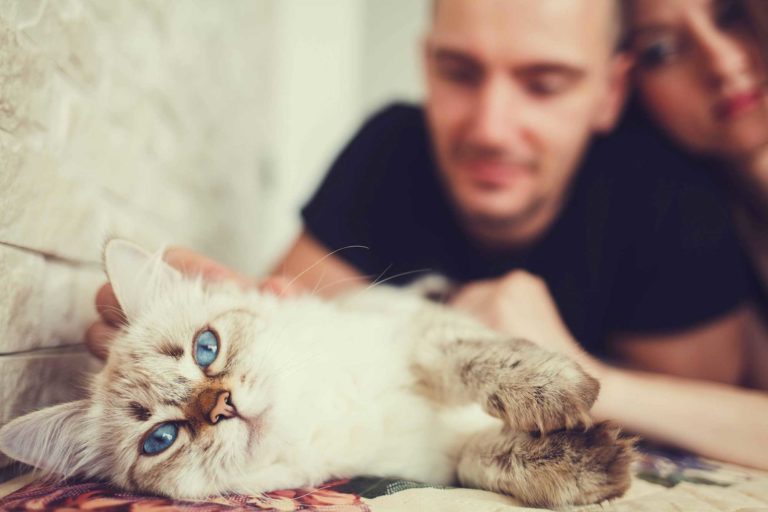By doing a little research, you can find a feline friend whose personality and care requirements mesh well with your family.
Just like people, cats have unique and individual personalities. Some are laid back, while others are always on the go. When looking for a new cat or kitten to add to your household, consider the type of personality that will mesh best with your family. Do you need a patient adult cat who enjoys the attention of young children? Or do you want to enjoy the antics of a curious kitten?
To find the perfect cat with a personality that matches the qualities you desire, breeders and shelter personnel often recommend adopting an adult cat. In fact, John Van Zante, the public relations director for the Rancho Coastal Humane Society in Encinitas, CA (rchumanesociety.org), says that there are advantages to adopting adult cats—or even senior cats—instead of kittens
or adolescent cats.
“Kittens and adolescents … are furry little ‘works in progress,’” he explains. “Adult cats generally have developed their personalities.”
By adopting an adult cat instead of a kitten, you can benefit from learning about about the cat’s temperament before you bring your new pet home. “In most cases, animal shelters and rescue groups are able to tell potential adopters about the personality, activity level, likes and dislikes of more mature cats,” Van Zante says.
Many breeders also have adult cats available for adoption and can tell you what to expect about the breed’s temperament and care requirements, such as grooming. Other things shelter workers and breeders may be able to tell you about an adult cat include:
- If he gets along with other cats and to what degree—friendship or simple acceptance?
- If he gets along with dogs and other pets— if he tolerates them or actively enjoys their company.
- How the cat interacts with children of all ages. In other words, can your six-year-old dress him up in doll clothes or will he hide under the bed when he sees your toddler coming?
- What type of physical interaction the cat enjoys—does he like to curl up in laps or is he content to sit next to someone on the couch?
- If the cat is outgoing with family members and visitors or takes a bit of time to warm up to people.
- If he enjoys long grooming sessions or prefers shorter, less-intense grooming.
- If he is a “talker” or the silent type.
- Does the adult cat need a companion (human, feline or otherwise) or is he content to be on his own? This can be especially important if you work outside the home.
- Does he have any medical issues? If so, are they easily manageable?
- What type of Cat genetics she might have.
- Does he have a microchip? If so, is there an extra fee included with the adoption charge?
- Can you contact the shelter with medical or behavioral questions after you get home?
You can help a shelter employee or breeder match you with the perfect feline companion by sharing information about yourself, your family, your work schedule and your lifestyle. “Talk about pets you’ve had in the past and your level of experience as a pet care provider,” Van Zante suggests.
Another key step to finding your ideal match, Van Zante says, is ensuring everyone in the household wants the same type—and age—of pet. “We suggest a family meeting before visiting the shelter,” he says. “Decide your preferences before you even leave home—but be prepared to be flexible.”
Being open to the idea of adopting an adult cat may lead you to the cat of your dreams. And if your family decides that a kitten is the best option, your local shelter or breeder can help match you with an ideal pet and help you prepare for the extra attention a young cat may need. Whether you adopt from a shelter or a breeder, the people involved want to help you find the perfect pet.
“The goal of the counselors is to send the pets home with families that will care for them until their last breath,” Van Zante says.






